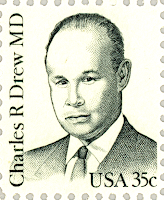


Dr. Camara Jules P. Harrell
Dr. Harrell is my Intro to Psych teacher. I decided to interview him because he is a very lively and personable man and I find his class very interesting. Because I am a psychology major, he was nice enough to help me map out my academic course load as well as grant me an interview.
Dr. Harrell got into psychology by simply electing to be a psych major at the undergrad level at the University of Colorado. He studied clinical psychology in graduate school at the University of Illinois, and part of his training involved research and teaching. He did not do an internship because during his studies in graduate school, he discovered that clinical psychology was not what he wanted to do. He says he is not patient enough and too emotional, and that all the people he saw seemed to get sicker.
Dr. Harrell chose his more research-oriented path because of his experience as a clinical pyschologist. Through his classes and his reading of scientific research, he discovered a love for research psychology (more than he had for applied psychology). He found that there were very interesting questions to answer and things that he thought he could do differently and, through his own innovation, improve upon. Nowadays, he spends a small percentage of his time actually teaching, and most of his time during the day on research.
When I asked Dr. Harrell what he thinks makes a successful student, he simply said a successful student is one who goes beyond the requirements of the classroom by seeking research and practical experience. He said that mastering the information is not enough, a student must take it further, and really get involved in their major. That way the stuff from the classroom will really stick.
Charles Richard Drew (June 3, 1904- April 1, 1950) did pioneering work in the field of blood transfusions, and was able to develop a new technique for blood storage using blood plasma, which contains no cells and therefore can be frozen, which he used to create the huge blood banks during World War II, which saved the lives of many Allied troops. He was also the first African American to receive the Doctor of Science degree, and the first black surgeon to serve as an examiner on the American Board of Surgery. He was also on staff here at Howard as an instructor in pathology, and later the head of surgery, at the Medical School. Our male freshman dorm is named after him. He only lived for 46 years, but his work will live on forever.
Charles Drew attended Dunbar High School in Washington, DC. Although segregated, it had a reputation for being one of the finest (black) public schools in the country. He was also an athlete, winning letter in track, baseball, football, and basketball, and received a partial scholarship which allowed him to attend Amherst College in Massachusetts.
Drew was always interested in a career in medicine. His sister Elsie, died in 1920 of the pandemic influenza, after having been afflicted with tuberculosis. This may have been what influence him to want to study medicine. He went to medical school at McGill University in Montreal, Canada, where he studied under John Beattie. Beattie was studying techniques and problems associated with blood transfusions, discovering that patients often died from loss of blood after accidents, and that there is a way to replace that blood, that there are four types of blood, and that the body would not reject blood of the same type. Drew undertook to discover the solution to the problem of finding a donor in an emergency (eventually leading him to the creation of blood banks).
I think that if asked what would make a successful student, Drew would answer passion and curiosity. An intriguing and very relevant problem spurred all of his research and discovery. His impetus was the death of his sister. I think he was driven by her memory and his love of learning to his success. I think he would say that if a student is sufficiently motivated and applies their talents to solving a problem that was personal and has bearing on their life, they will be most rewarded by their life work.



